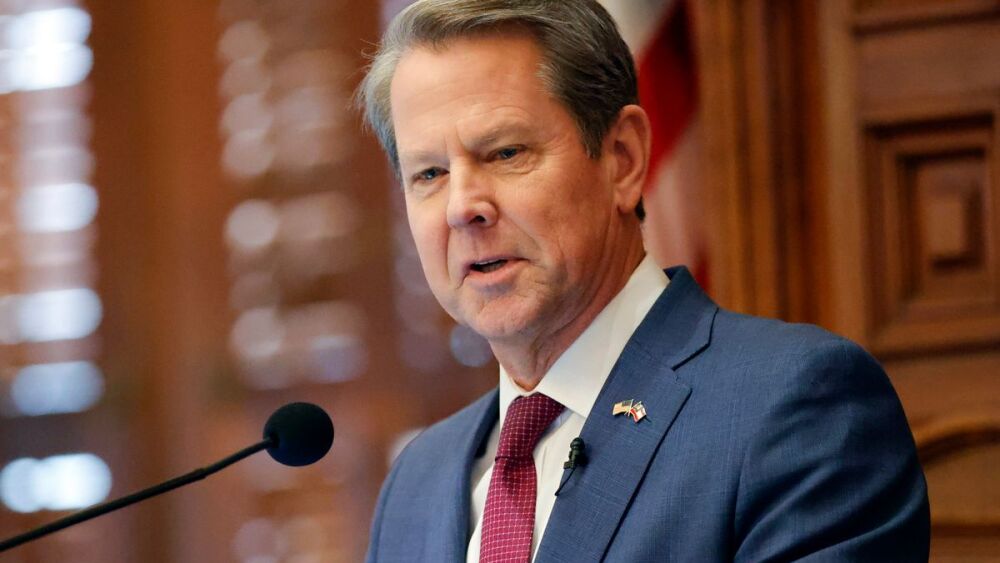By Jeff Amy
Associated Press
ATLANTA — Gov. Brian Kemp signed a bill into law Friday creating a new commission empowered to discipline and remove wayward prosecutors, saying it will curb “far-left prosecutors” who are “making our communities less safe.”
Kemp made the remarks at the Chatham County Sheriff’s Office in Savannah, where he signed the measure establishing the Prosecuting Attorneys Qualifications Commission, which will launch July 1 and start accepting complaints Oct. 1.
“I am not going to stand idly by as rogue or incompetent prosecutors refuse to uphold the law,” Kemp said. “Today we are sending a message that we will not forfeit public safety for prosecutors to let criminals off the hook.”
The law parallels pushes to remove prosecutors in Florida, Indiana, Missouri and Pennsylvania, as well as broader disputes nationwide over how certain criminal offenses should be charged.
The efforts continue anti-crime campaigns that Republicans ran nationwide last year, accusing Democrats of coddling criminals and improperly refusing to prosecute whole categories of crimes, including marijuana possession.
Georgia Democrats strenuously opposed the measure, saying the Republican legislative majority was seeking another way to impose its will on Democratic voters at the local level.
“I strongly oppose an excessive and unnecessary commission as district attorneys are already held accountable under existing laws and through the current democratic process of holding election,” said Deborah Gonzalez, Democratic district attorney for Athens-Clarke and Oconee counties.
Gonzalez, under fire in Kemp’s hometown of Athens, was cited by Republicans as one of the law’s top targets. She has declined to prosecute marijuana crimes, some prosecutors have left her office and judges have criticized her for missing court deadlines.
Crucially, the Georgia law mandates that a prosecutor must consider every case for which probable cause exists and can’t exclude categories of cases from prosecution.
Experts have said that considering every case individually is unrealistic, because prosecutors turn down many more cases than they charge. However, it’s unclear if the new law will change prosecutors’ behavior or just lead them to avoid talking publicly about charging decisions.
The eight-member commission will include six current or former prosecutors and two other lawyers. It will oversee DAs and solicitors general — elected prosecutors who handle lower-level crimes in some counties.


